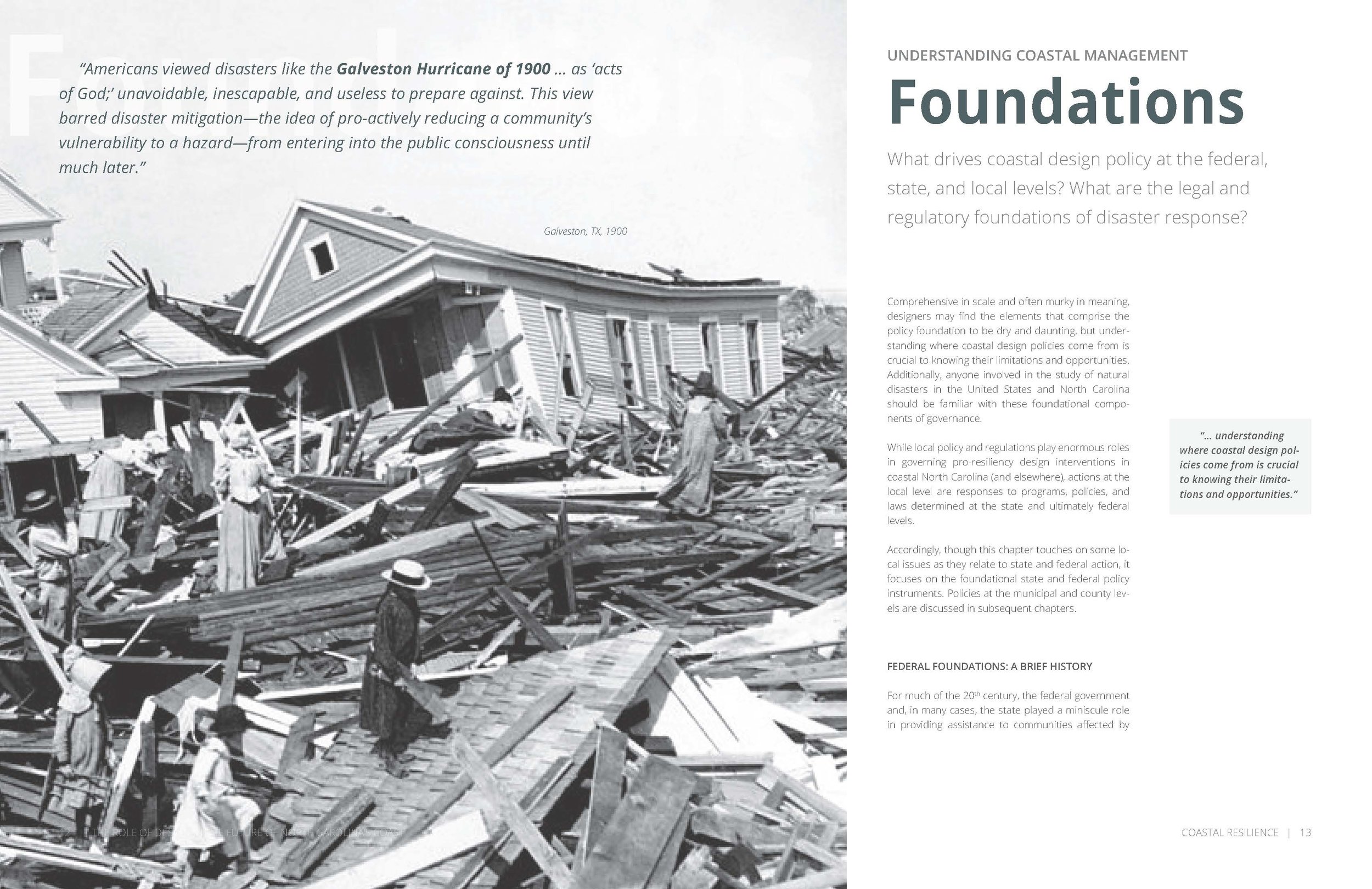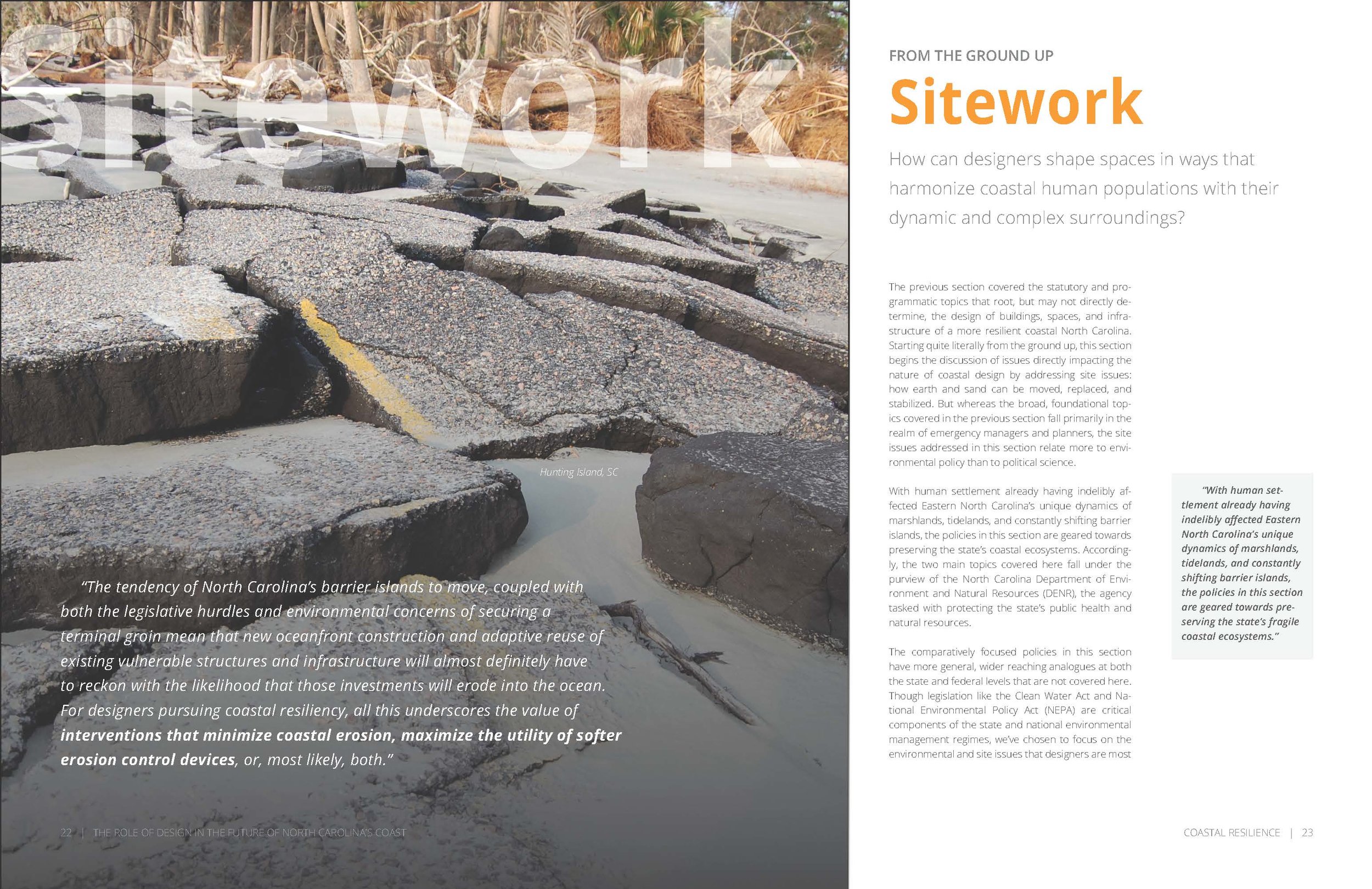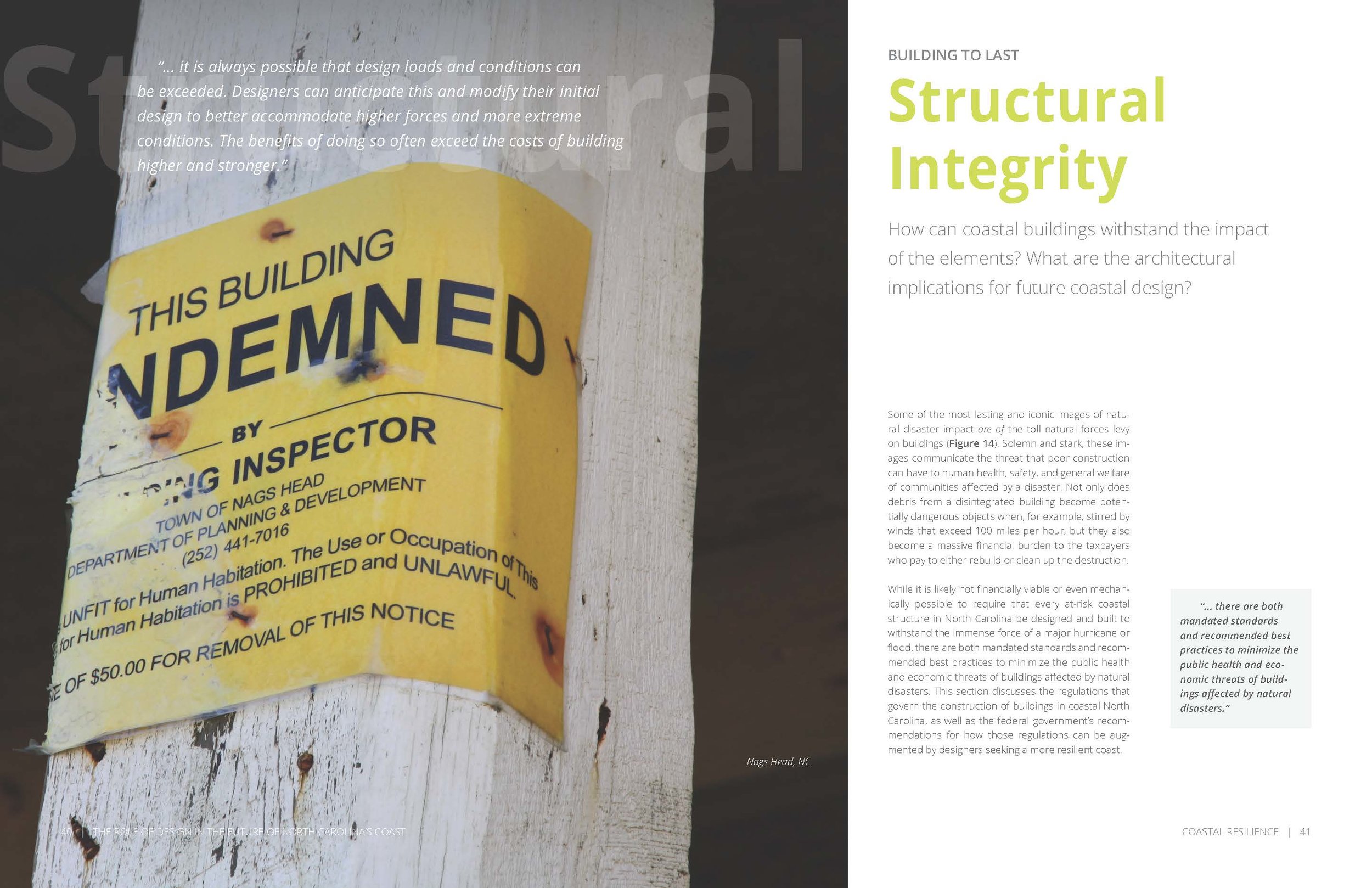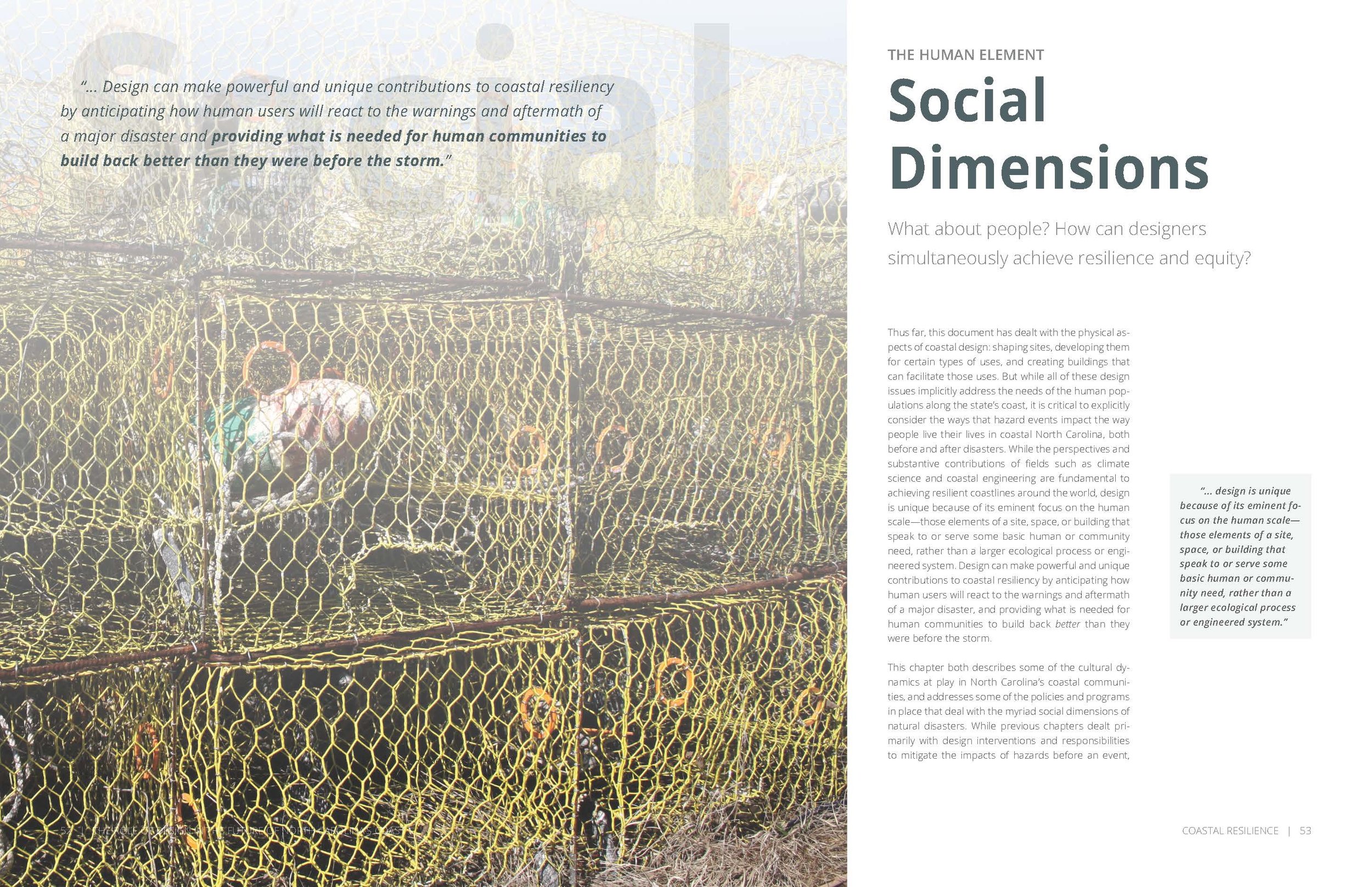Project Summary
Current socio-ecological imperatives demand architects, landscape architects, planners, and engineers to address the question: what role can the design process—thinking abstractly, iterating, testing, and modifying—play in realizing communities that are resilient to and can even alleviate the effects of the next generation of coastal storms and flooding?
In the State of North Carolina, the response from the design fields—specifically architects, landscape architects, and engineers—must be site-specific, tailored to the unique environmental and cultural contexts of coastal North Carolina. But both the issues and the work of the professional design communities—the approach, the process, and the design itself—must speak to the global role that design can play in addressing one of the most pressing issues of our time. With its legacy of outreach and engagement, its implicit mandate for invention and ingenuity, and its penchant for multi-disciplinary collaboration, design is poised to participate in the international discourse around climate change, natural disasters, and coastal life as we know it. It is the role of each designer, on his or her own, to determine the character of the field’s contributions.
This document grounds designers in the web of policies, concepts, and the existing framework of governance that determines the shape of design interventions that can prepare coastal North Carolina for the disaster events of the future. Central to the discussion is the notion of resilience—“the ability to prepare and plan for, absorb, recover from, and more successfully adapt to adverse events. Enhanced resilience allows better anticipation of disasters and better planning to reduce disaster losses—rather than waiting for an event to occur and paying for it afterward.” Familiarity with the topics covered in this document not only provides an awareness of the prevailing discourse involved in climate change, hazard resiliency, and coastal development in the US and North Carolina, but it also ensures pragmatic, operational, and legal design interventions.
Awards
Honor Award: Research
ASLA North Carolina | 2015
Funding Source
NC Sea Grant / NC Coastal Resources Law, Planning and Policy Center
Additional Links
On-Line Documents
Forthcoming
Sample Images







